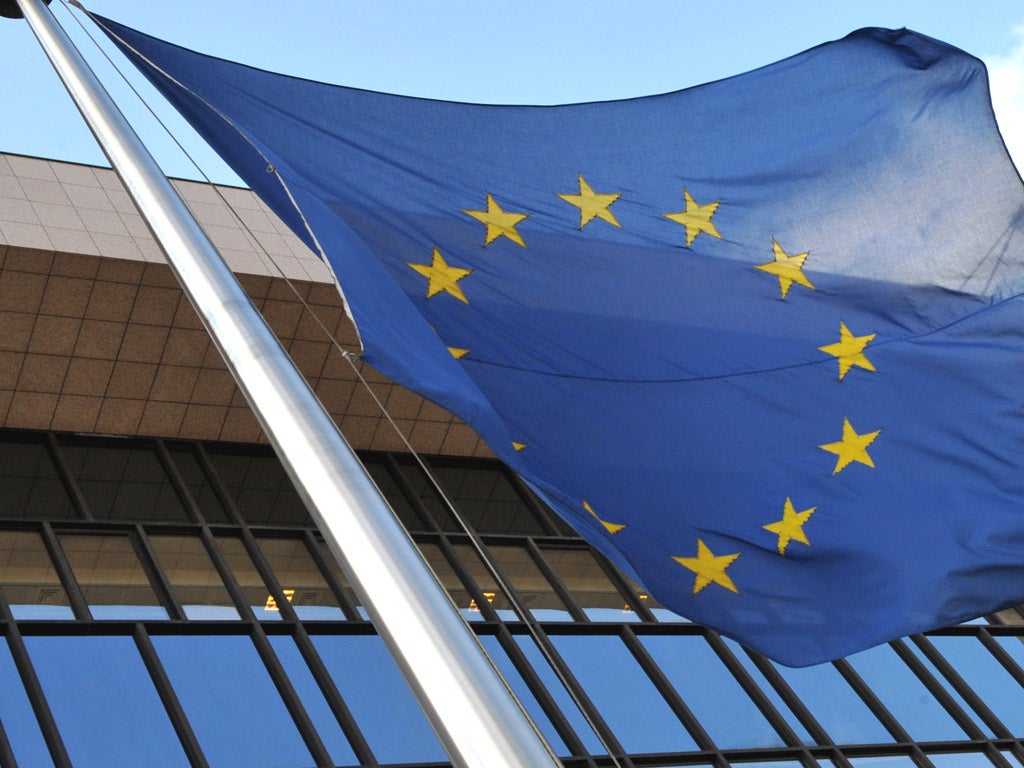Parliament will debate EU referendum as rebel MPs force issue on Cameron with Private Member's Bills
PM's tactics and leadership will be questioned after 114 Tory MPs vote for Queen's Speech amendment

Your support helps us to tell the story
From reproductive rights to climate change to Big Tech, The Independent is on the ground when the story is developing. Whether it's investigating the financials of Elon Musk's pro-Trump PAC or producing our latest documentary, 'The A Word', which shines a light on the American women fighting for reproductive rights, we know how important it is to parse out the facts from the messaging.
At such a critical moment in US history, we need reporters on the ground. Your donation allows us to keep sending journalists to speak to both sides of the story.
The Independent is trusted by Americans across the entire political spectrum. And unlike many other quality news outlets, we choose not to lock Americans out of our reporting and analysis with paywalls. We believe quality journalism should be available to everyone, paid for by those who can afford it.
Your support makes all the difference.David Cameron's authority suffered a huge blow when more than 100 Conservative MPs defied him by voting for a referendum on the European Union.
Britain moved closer to an in/out referendum as Nick Clegg told MPs: "It is a question of when, not if, because the rules [of the EU] are bound to change." He believes one is inevitable because a new EU treaty will be needed to entrench eurozone reforms in the next few years, and the Coalition has already passed a law guaranteeing a referendum if there is a significant transfer of powers to Brussels.
Some 114 Tories rejected pressure from their whips by opposing the Coalition's legislative programme because it does not offer the public a vote on EU membership. They backed an amendment to the Queen's Speech regretting the absence of a Referendum Bill. Although the amendment was defeated by 277 votes to 130, it was the biggest backbench revolt on Europe since the 2010 election.
A ballot is being held this morning for Private Member's Bills, which party command will now seek to use as a vehicle legally to commit to a poll on Britain's relationship with Brussels.
The Eurosceptics were delighted by their show of strength. But Tory officials played down the revolt, insisting it was a free vote because the amendment was in line with party policy. But it was clear that Mr Cameron's decision to rush out a draft Referendum Bill on Tuesday had failed to quell the rebellion.
Douglas Alexander, the shadow Foreign Secretary, said: "This vote is a further devastating blow to the Prime Minister's authority. It demonstrates that David Cameron has managed to turn a Europe issue into a leadership issue. This is a Prime Minister who has lost control of the agenda and tonight lost control of his party."
John Baron, the Eurosceptic who tabled the rebel amendment, warned he was "not going to walk away" from the fight for a referendum, insisting MPs needed to pass legislation to "bridge trust" with the public. He said he had "deep reservations" about Mr Cameron's plan to support a backbench Bill guaranteeing a referendum by 2017, because such a measure could be blocked by "a determined minority".
Mr Clegg's decision to harden the Liberal Democrats' 2010 pledge for an in/out referendum when there is significant change in the UK-EU relationship, put pressure on Labour to follow suit. Ed Balls, the shadow Chancellor, gave Labour's strongest hint that it might support a public vote when he told the Commons: "If there was a treaty change which changed the balance of powers, we would support a referendum. I think it is really important that we understand and listen to people's concerns about Europe and show that we can reform."
Labour and the Liberal Democrats believe Mr Cameron is wrong to fix the 2017 timetable now. Both parties intend to campaign in favour of Britain's continued EU membership. But the statements show they are worried about Conservative claims that they want to deny the public a say on Europe.
Mr Clegg's remarks could remove an obstacle to a second Lib-Con coalition if the 2015 election results in another hung parliament.
Today Vince Cable, the Liberal Democrat Business Secretary, will warn the Conservatives that dancing to the UK Independence Party's tune after this month's local elections could cost investment and jobs.
He will say in a speech: "No serious friend of British business would be advocating the break-up of Britain's relations with the EU. We can't have hearts ruling heads. It is simply self-indulgent and reckless for parties or individuals to risk so much in order to address one concern raised in a council election by just 7 per cent of the electorate."
The Tories insist they are the only main party guaranteeing a referendum. Speaking in New York, Mr Cameron accused Ed Miliband and Mr Clegg of "sticking their heads in the sand" and "pretending nothing has changed" in the arguments over Britain's place within the EU.
He said: "Britain needs to be a part of forging that change, just as the eurozone countries come together and do more things together, so those countries outside the eurozone need to work out how they're going to make their relationship work with Europe."
Join our commenting forum
Join thought-provoking conversations, follow other Independent readers and see their replies
Comments